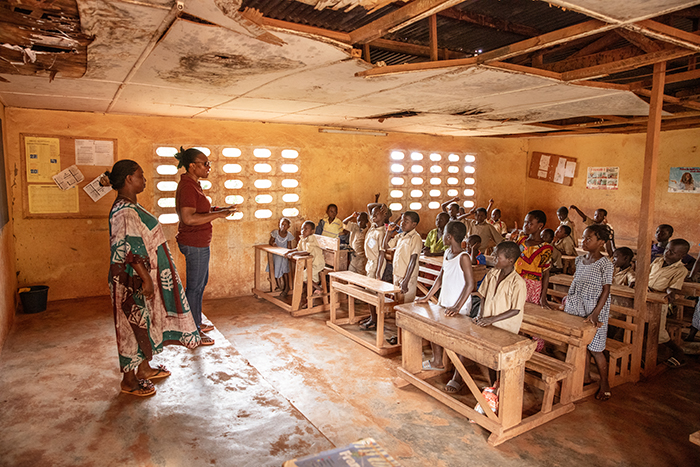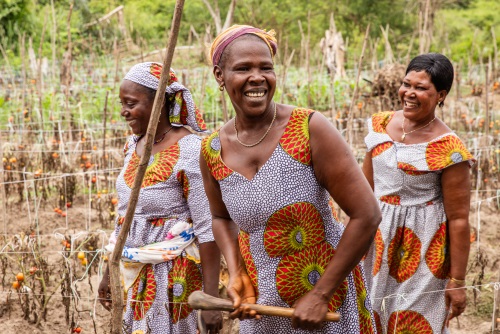Income accelerator programme

Supporting cocoa farmers and their families
Cocoa farmers face numerous issues and pressures. Even with government support and additional premiums like Rainforest Alliance and Fairtrade, many farmers simply don't grow enough cocoa to earn a living wage. This creates societal as well as economic issues. For example, when farmers can't afford to send their kids to school, the risk of child labour greatly increases. Women, typically responsible for childcare and household expenses, often have no direct income of their own and aren't empowered to make choices. Additionally, cocoa farmers operate in areas vulnerable to the effects of climate change. Without action, this represents another threat to their livelihoods.
About the income accelerator programme
The living income accelerator is a new programme aimed at increasing income for cocoa farmers and supporting their children and families. There are four key parts to it, each underpinned by support and financial incentives.

Along with a financial incentive, farmers will be given training and support to develop good agricultural practices, such as pruning trees, which can boost productivity and therefore income significantly.

Nestlé has promised to develop ways of producing food that actively restore natural habitats and protect biodiversity - and this is an important strand of the programme. Cocoa farmers are particularly affected by climate change - droughts and other extreme weather conditions can devastate crops and destroy fertile soil. Farmers will be incentivised to carry out activities which help build climate resilience, such as planting shade trees that not only protect the cocoa crops but absorb and capture carbon dioxide from the air.

Nestlé will provide financial incentives to families for enrolling all children aged between 6 and 16 in school. Payments will be made at the start of the school year, which is when families say the money is needed the most.

Farmers will receive payments to establish additional sources of income, such as growing fruit trees or other crops, keeping livestock or beekeeping.




